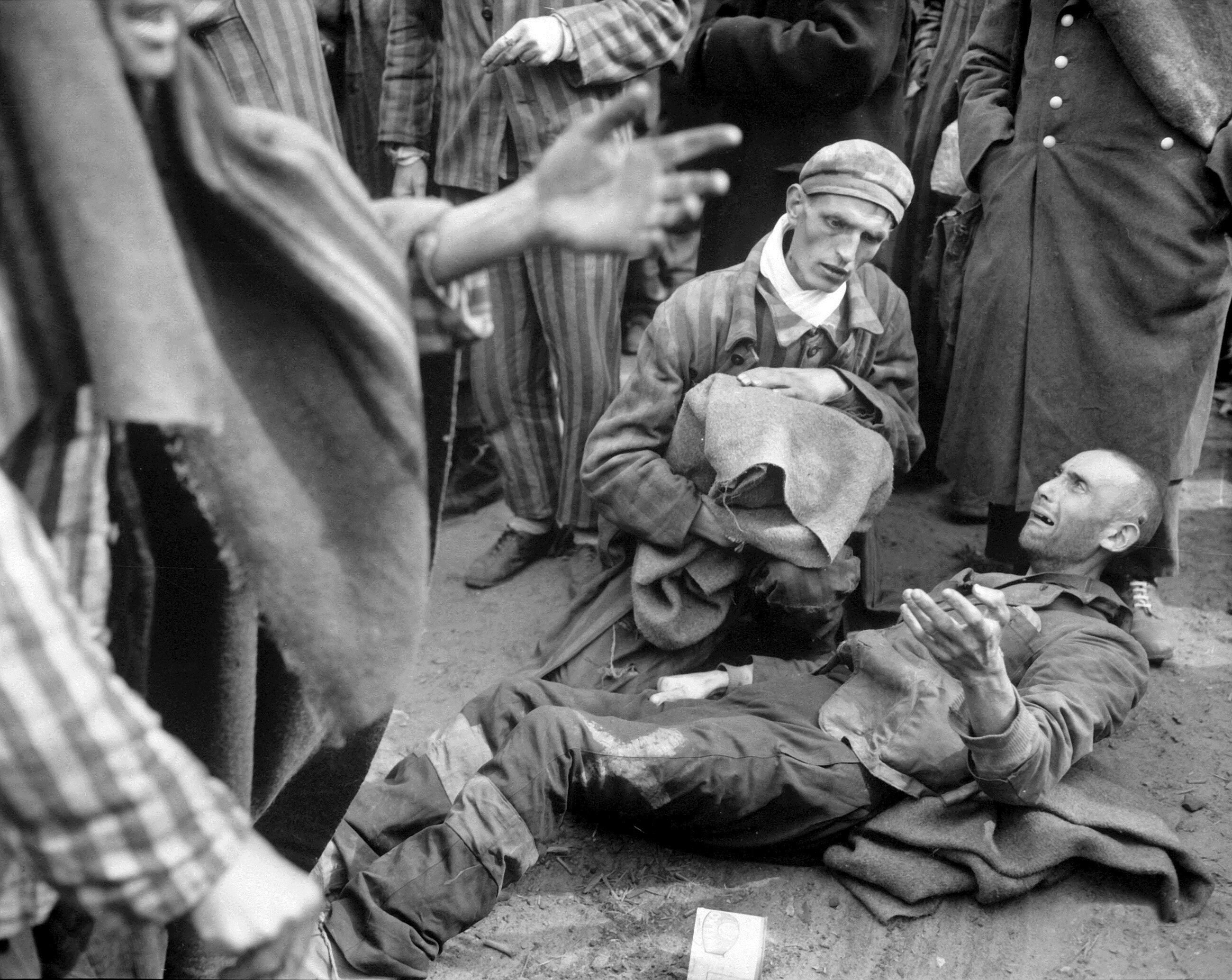Thousands of pages have been used to write down the evidence that not all Germans were the Nazis, there are numerous webpages in the Internet on the matter and millions of viewers saw the films that support that thesis. Rightly so, as there were Germans in III Reich who did not support Hitler. One cannot forget, however, that the Nazis had massive support in Germany. Without that support, the start of the war and extermination machines would not have been possible. There have also been a lot of text written on the subject, full of accurate arguments.
In this whole discussion, the supporters of mutually non-exclusive theses, refer to the streotypes, simplified logic and individual examples. They are missing one key element – the data. It is a pity, as for tens of years, the data has been readily available.
In 1945, Americans rightly estimated that in order to effectively manage their occupation zone, it would be worth knowing the opinions of the conquered people, opinions on the most important issues. The opinion polls had been conducted in the USA for a decade so American administration owned the appriopriate tools in order to obtain credible data. Based on those, one could refine the propaganda aimed at Germans.
Thanks to the system of food coupons, they created a complete database of the occupation zone inhabitants, zone that was steeped in chaos. Such a database allowed for a representative sample of 1000-3000 people. The pollsters that talked to the respondents were Germans trained by Americans. The results of this research are now priceless.
One in three Germans supported the extermination
During four years 72 polls were carried out, with 191 questions on verious topics – from attitudes towards American soldiers and press readership to the evaluation of the Nazis’ decision on the extermination of Poles and Jews. This last research is the most interesting for us.
As many as 37% of Germans, who lived in American occupation zone, claimed that the extermination of Poles, Jews and other non-Aryans was neccessary to ensure the security of Germans. These declarations date back to April 1946 when the knowledge on concentration camps and the scale of German atrocities was already common. The respondents were fully aware they answered to the occupier, who had full control over them.
In the same poll, 8% of American zone and 21% of Berlin inhabitants claimed that the war was caused by an international plot of the bankers and communists. The opposite view was presented by two thirds and three quarters respectively.
A year and a half after the end of the war – in October 1946 – when asked why did the Nazi party rounded people up in concentration camps, 65% of the respondents answered that the reasons were political ones. In their view, the people who were put there posed a threat to the regime. 14% thought that one ended up in camp for „telling truth, talking too much to wrong people or at the wrong time”. 6% of Germans thought that people were sent to the camps for religious reasons or for being of Jewish origin. The same number thought it were just the ordinary criminals who were put in those camps.
Two months later – in December 1946 – 21% of Germans still claimed that the III Reich attacked Poland in order to protect Germans who lived there and were supposedly ill-treated. 46% thought that the reason for the war put forward by the Nazi propaganda was not the true one and one in three had no opinion on the matter.
The experience of the war, the awareness of the committed crimes and American occupation did not radically influence German attitudes. The researchers that carried out the poll among 3006 inhabitans of American zone were able to determine five groups, representative of German society’s attitude towards Jews. 61% were evaluated as racists, ant-Semitists or radical anti-Semitists. The others were nationalists and those prejudiced against Jews at a low level. When the poll was repeated a year later, the results were similar. What surprised the researchers was the fact that the most anti-Semitic group is youth between 15 and 19 years old.
The research from April 1946 shows that Germans drew valid conclusions from their two lost world wars. Eight out ten in the American zone and 89% of Berliners admitted that the reason for their current woes was German attempt to conquer other countries.
Psychological Warfare Division
The vast expanse of this research was possible thanks to the extensive propaganda aparatus of the Allies, something that is now often forgotten about. That all was in the hands of the general Robert A McClure, who headed the Psychological Warfare Division. The department was under the authority of Head Command of Allied Expedited Forces. On 12th May 1945, on that base, Department of Information Control was established. That in turn was under the authority of military structures of American occupation zone in Germany. Within the department, the Opinion Survey Section was established, lead by dr Frederick W. Williams. Williams had previously (for half a year) carried out the polls among the captured German soldiers. Williams was granted some of the personnel who had carried out research before – research that was to evaluate the consequences of the strategic bombings. Thus he had both the experience and the staff, that allowed for conductiong the research in extremely difficult circumstanes.
The results could be significantly distorted and this is why we have to consider the historical aspect of them. The field research was performed by German pollsters but it was all commissioned by American military administration. The respondents knew it and that is why, despite the promise of anonymity, the influence of the orderer had to be huge. The experiment conducted in Berlin in 1948, showed the average difference of 11% in research results between German research agency and American administration. The smallest gap was evident in questions pertaining to national socialism.
American soldiers that captured Germany were not as chivalrous as often depicted in Hollywood films. Germany had no previous tradition of opinion polls on such a large scale. Addittionally, the respondents could fear the consequences of their answers. That is why one can assume that large percentage of the respondents hid their true beliefs for fear of the Allies’ dispproval. What number was it? That probably can no longer be determined. The percentage of people directly declaring Nazi beliefs and hatred towards the Jews was however still very high.
Dalsze rozpowszechnianie artykułu tylko za zgodą wydawcy tygodnika Do Rzeczy.
Regulamin i warunki licencjonowania materiałów prasowych.

